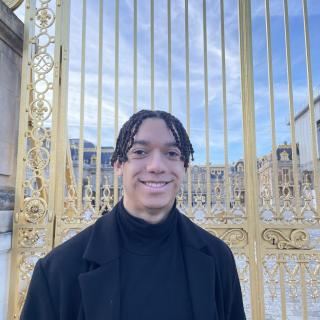Meet Lauren Byrnes (IES Abroad Freiburg, 2011) a biologist who reflects on how her study abroad in Freiburg seeded the courage she needed to enter into the unknowns of biology, and make new discoveries. Read on to learn more about Lauren and how studying abroad shaped her life.
IES Abroad: As an undergrad at Northeastern University, what made you decide to study abroad in Freiburg, Germany?
Lauren Byrnes (LB): I always had an interest in the German language. I started taking German in middle and high school and continued with courses at Northeastern. Germany also had strong science programs, and so the opportunity to study abroad in Germany satisfied both my scientific and language interests. Freiburg, in particular, had programs focused on environmental science, which was slightly outside my biology interests but was nonetheless intriguing.
IES Abroad: Do you have any profound memories from your time in Freiburg that helped shape the person you are today?
I remember taking a trip with my Forest Management & Ecology class to the Black Forest and learning about the huge amount of work that is required for the maintenance of a healthy forest. I had assumed that the maintenance of forests was largely…well…not doing anything and letting the forest grow, but it actually was an incredibly active, constant process. It challenged some of the assumptions I had about how to deal with upcoming environmental problems – and that standing-by to “let things resolve” would not be sufficient for many of these problems.
IES Abroad: Why is environmental sustainability important to you?
LB: As a biologist, I’ve been lucky to see some of nature’s wonders up close and it’s just too amazing to lose. Along with our privilege of being able to study and observe all the beauty in nature, we have an obligation to protect and preserve it.
IES Abroad: Where did your career take you after graduating?
LB: After graduating from Northeastern, I applied and was granted a Fulbright Scholarship and subsequent DAAD Scholarship to return to Germany for a Master’s degree in Molecular and Cellular Biology at Heidelberg University. I was incredibly excited to return to Germany with enhanced language capabilities from my time in Freiburg and to complete a full program at a German University. After my Master’s degree, I completed a Ph.D. in Developmental and Stem Cell Biology at the University of California, San Francisco (UCSF). I’m now a Post-Doctoral Scholar at UCSF, and still working in the field of developmental and stem cell biology.
IES Abroad: Tell us more about your post-doctoral work at UCSF.
LB: I’ve always been fascinated by the fact that the entire human body is derived from one single cell. This single cell divides to create a lot more cells, and then these cells go on to become all the different cell types within the body. Very early in development, cells can become any type of cell in the body, but as development proceeds, cells begin to specialize in a particular cell type. I’m studying how cells decide what type of cell they will become. When and how does a cell decide that is will become a cell in the eye that will help you see—or a cell in the heart that pumps blood throughout the body? I’m using two model systems, the cells that make up our airways and the cells in the spinal cord to understand what regulates the cell decision to specialize in particular cell types. As a field, our goal is to find if there are general biological principles that cells use to make these cell fate decisions. Ultimately, we hope to apply this knowledge and use stem cell technologies to produce needed cell types for cellular therapy or drug development.
IES Abroad: How have the skills you learned abroad transferred to your professional life?
LB: As Freiburg was my first experience abroad, I was intimidated by the unfamiliarity of the language and environment. During this time, I learned how to open up to the unfamiliar and experience the joy of discovery. The skill of immersing myself in the unknown was hugely beneficial during my Ph.D., where you are expected to dive into the unknown to advance knowledge. My experience in Freiburg seeded the courage I needed to enter into the unknowns of biology and make new discoveries.
IES Abroad: Do you have any advice for students considering studying or interning abroad?
LB: First, be open to new experiences. Although my career has not remained focused on environmental science, the experiences from Freiburg have helped shaped my understanding of the current climate crisis and opened my eyes to the effort that goes into environmental sustainability. I’m not sure where else during my career I would have had a hands-on opportunity to learn about forest management or green energy. Second, invest time in getting to know the local people. While I definitely enjoyed the weekend trips to new cities around Europe, what I remember most are the nights in with my German roommates—cooking dinners, watching German television and movies, going to concerts, biking to Uni exercise classes, and meeting their friends and families. I’m grateful that I was welcomed so openly into their world and was able to really connect with another culture.
Learn more about studying abroad in Freiburg, and check out all of our Alum of the Month profiles to see real examples of how study abroad changed the lives and careers of our former students. To help more students like Lauren receive the option to study abroad, you can support our scholarships.





